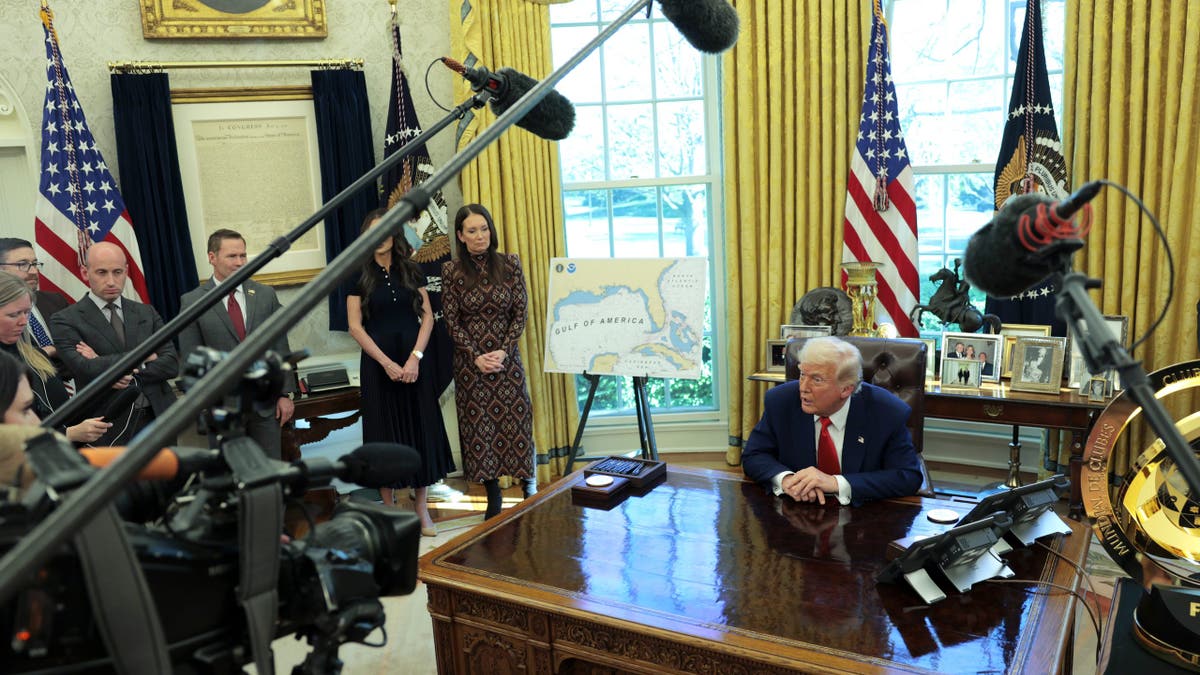
Image Source:
Source: foxnews.com
Image content: The image depicts former US President Donald Trump seated at a desk in the Oval Office, surrounded by several individuals and media equipment. The scene appears to be a press conference or public address. Trump is dressed in a blue suit and red tie, sitting behind a large wooden desk with his hands clasped together.
Summary
Canada's federal party leaders clashed in a TV debate ahead of the general election, with US President Donald Trump's trade policies and tariffs dominating the discussion. The leaders discussed trade, affordability, crime, and the environment, with a focus on how to manage Canada's relationship with the US under Trump's presidency.
Key Points
- The debate centered around Trump's trade policies and tariffs, with leaders agreeing that the US is no longer a reliable partner under his presidency.
- Liberal leader Mark Carney and Conservative leader Pierre Poilievre exchanged blows, with Carney emphasizing his experience navigating global economic crises and Poilievre promising to renegotiate the US-Mexico-Canada Agreement.
- The leaders supported targeted retaliatory tariffs and diversifying Canada's trade to reduce reliance on the US, with revenue from countertariffs to be used to support workers and firms.